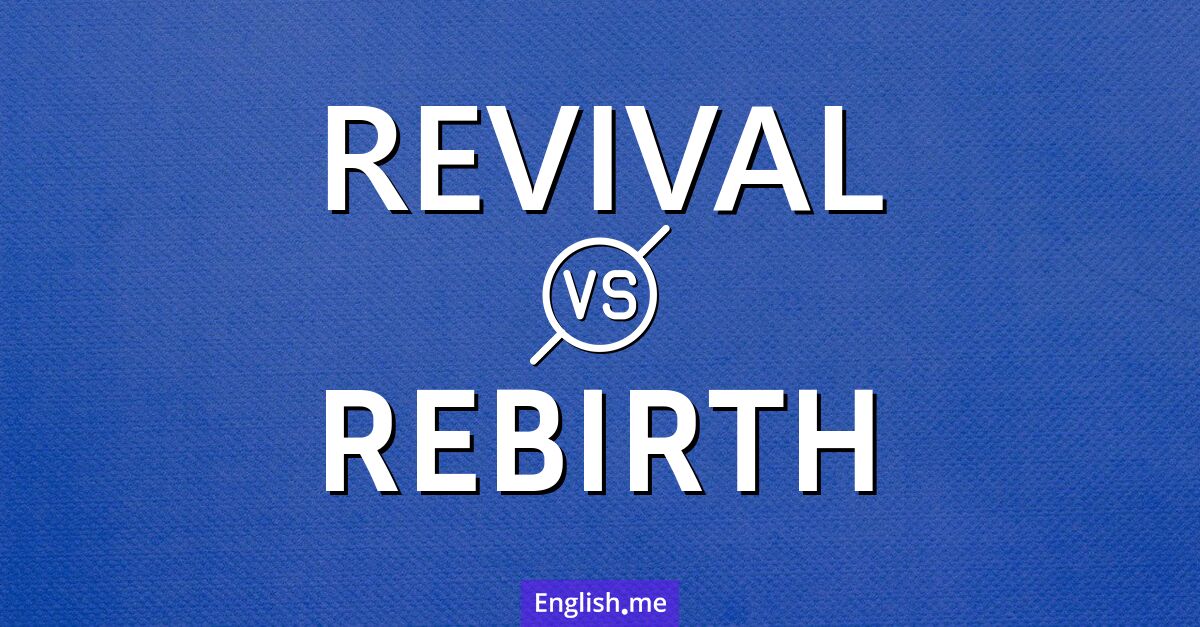"Revival" vs. "rebirth": a tale of two comebacks
Reviewed and edited by  Lloyd Cooper 27/10/2024, 04:22
Lloyd Cooper 27/10/2024, 04:22
English.me team member

 What is similar?
What is similar?
Both "revival" and "rebirth" refer to a process of coming back to life or gaining renewed strength, often used metaphorically to describe renewed interest or activity.
 What is different?
What is different?
While "revival" implies a return to a former state or an improvement in condition, often involving existing structures or ideas, "rebirth" suggests a more profound or complete transformation and new beginning. "Revival" is more commonly used in contexts related to culture, religion, or health, whereas "rebirth" often implies a spiritual or radical transformation.
 Which one is more common?
Which one is more common?

 Examples of usage
Examples of usage
Revival- The revival of the old theater brought joy to the community.
- There is a revival of interest in classical music among the youth.
- The patient experienced a remarkable revival in their health after the treatment.
- The phoenix is a symbol of rebirth and immortality.
- After the war, the nation underwent a rebirth and transformed itself completely.
- Her decision to start anew was like a personal rebirth.

 English
English español
español française
française italiano
italiano deutsche
deutsche 日本語
日本語 polski
polski česky
česky svenska
svenska Türkçe
Türkçe Nederlands
Nederlands